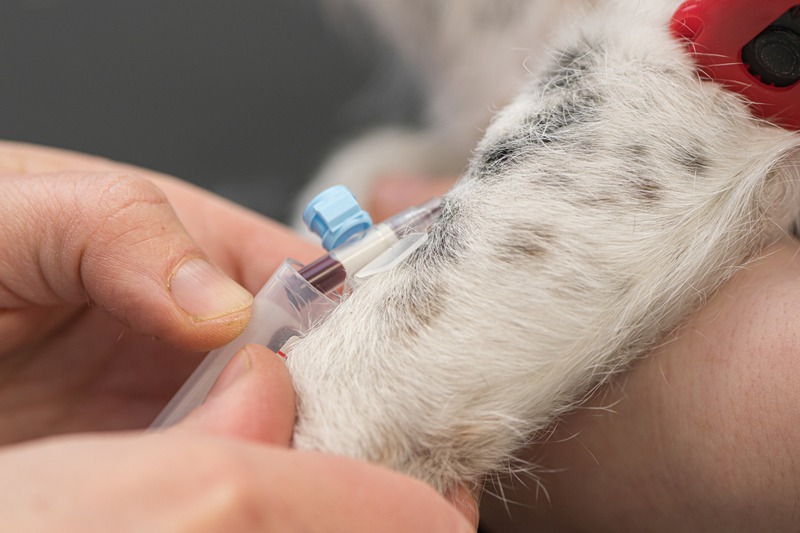When it comes to our furry family members, we always want to ensure they receive the best care possible. One question many pet owners often ask is whether lab work is necessary before their pets undergo routine surgeries. It’s a valid concern, especially with the costs and risks involved. Let’s break down the importance of lab work to help you make an informed decision.
Why Is Lab Work Necessary for Routine Pet Surgeries?
1. Minimized Surgical Risks
Conducting pre-surgery lab work includes blood tests and other diagnostics that help identify underlying conditions such as anemia, infections, or clotting disorders. By discovering these issues beforehand, medical professionals can take necessary precautions to avoid complications during surgery. This leads to safer operations and reduces the risk of adverse outcomes for patients.
2. Personalized Surgical Plans
With detailed insights from lab work, surgeons can tailor their surgical approach to each patient’s specific health status. For example, adjusting anesthesia plans or modifying surgical techniques based on kidney or liver function test results ensures a better fit for the patient’s needs. Personalized plans enhance the overall effectiveness and safety of the surgery.
3. Enhanced Recovery Outcomes
Knowing a patient’s baseline health metrics enables healthcare providers to predict and manage the post-operative course more effectively. By addressing any issues identified through pre-surgery lab work, interventions can be timely and targeted, promoting faster and smoother recoveries. Patients are thus less likely to face complications, leading to improved recovery times and better overall satisfaction.
4. Optimized Medication Management
Pre-surgery lab work helps identify potential interactions between medications and the planned anesthetics or surgical drugs. Understanding a patient’s liver and kidney function allows doctors to adjust dosages accurately to avoid adverse drug reactions. This ensures that patients receive the safest and most appropriate medications during and after the surgery.
5. Informed Consent
By providing a comprehensive picture of the patient’s health, pre-surgery lab work equips patients and their families with valuable information to make informed decisions. When patients understand their health status and potential risks, they can give more meaningful consent to the procedure. This transparency builds trust between patients and healthcare providers, fostering better communication and a cooperative treatment approach.
6. Cost Efficiency
Detecting potential issues early through lab tests can prevent costly complications and extended hospital stays. Proactive management of health conditions identified before surgery reduces the likelihood of emergency interventions and readmissions. This not only improves patient outcomes but also contributes to more efficient use of healthcare resources, lowering overall costs for both patients and the healthcare system.
Types of Lab Work for Pet Surgeries
Pre-Anesthetic Blood Work
This type of blood work evaluates how your pet’s liver and kidneys are functioning. These organs are essential in metabolizing and excreting anesthesia. Without proper function, your pet could face severe complications under anesthesia.
Complete Blood Count (CBC)
-
Checks for anemia, infections, and blood clotting issues.
-
Ensures your pet has enough red and white blood cells and platelets.
Biochemistry Profile
-
Examines organ functions, particularly the liver and kidneys.
-
It helps detect diabetes, electrolyte imbalances, and other metabolic disorders.
Urinalysis
A urinalysis checks for urinary tract infections and other kidney issues. It also assesses the urine’s concentration, which provides insights into the pet’s hydration status and kidney function.
If your vet suggests advanced lab work, they might refer you to a specialized animal lab in Cumming, GA or other reputable facilities. These labs offer more detailed diagnostics that could help in assessing complex conditions.
How Lab Results Guide Your Vet
Your veterinary surgeon will use the lab results to tailor the anesthesia plan and any post-operative care. If the lab work reveals any issues, the surgery might be postponed until your pet is in a safer condition for the procedure. This cautious approach helps to minimize risks during surgery.
Special Considerations for Older Pets and Special Cases
For older pets or those with pre-existing conditions, lab work becomes even more crucial. Aging pets are more likely to have hidden health issues that could be exacerbated by anesthesia. Similarly, pets with conditions like diabetes or heart disease require a more detailed health assessment to avoid complications.
Benefits of Pre-Surgery Lab Work
-
Early detection of hidden health issues.
-
Customized anesthesia plans based on individual health needs.
-
Increased chances of a safe and smooth surgery.
-
Better post-operative care and quicker recovery.
Alternatives to Routine Surgeries
In some cases, alternative treatments might be available, such as pet acupuncture, which can alleviate certain conditions without the need for invasive procedures. Discuss with your veterinary surgeon to see if such options are suitable for your pet.
Cost Considerations
Pre-surgery lab work does add to the overall cost of a surgical procedure. However, it’s a small price to pay for the peace of mind and the assurance that your pet is in the best health for surgery. Moreover, detecting health issues early can save you money in the long run by preventing complications and additional treatments.
Final Thoughts
Lab work before routine pet surgeries is a crucial step in ensuring the safety and health of your furry friend. It provides a thorough health assessment, helping the veterinary surgeon tailor the surgical plan and minimize any risks. Though it adds to the cost, the benefits far outweigh the expenses by safeguarding against potential complications. Always consult your vet about your pet’s specific needs to ensure they are well-prepared for any surgical procedures.





